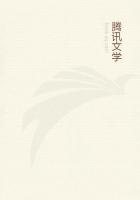What queer creatures these dumb brutes are. They're pretty much like us in most ways. They're jealous and resentful, and they can love or hate equally well and forgive, too, for that matter; and suffer how they can suffer, and so patiently, too. Where is the human being that would put up with the tortures that animals endure and yet come out so patient?""Nowhere," said Miss Laura, in a low voice "we couldn't do it.""And there doesn't seem to be an animal," Mrs. Wood went on, "no matter how ugly and repulsive it is, but what has some lovable qualities. I have just been reading about some sewer rats, Louise Michel's rats ""Who is she?" asked Miss Laura.
"A celebrated Frenchwoman, my dear child, 'the priestess of pity and vengeance,' Mr. Stead calls her. You are too young to know about her but I remember reading of her in 1872, during the Commune troubles in France. She is an anarchist, and she used to wear a uniform, and shoulder a rifle, and help to build barricades.
She was arrested and sent as a convict to one of the French penal colonies. She has a most wonderful love for animals in her heart, and when she went home she took four cats with her. She was put into prison again in France and took the cats with her. Rats came about her cell and she petted them and taught her cats to be kind to them. Before she got the cats thoroughly drilled one of them bit a rat's paw. Louise nursed the rat till it got well, then let it down by a string from her window. It went back to its sewer, and, I suppose, told the other rats how kind Louise had been to it, for after that they came to her cell without fear. Mother rats brought their young ones and placed them at her feet, as if to ask her protection for them. The most remarkable thing about them was their affection for each other. Young rats would chew the crusts thrown to old toothless rats, so that they might more easily eat them, and if a young rat dared help itself before an old one, the others punished it.""That sounds very interesting, auntie," said Miss Laura. "Where did you read it?""I have just got the magazine," said Mrs. Wood; "you shall have it as soon as you come into the house.""I love to be with you, dear auntie," said Miss Laura, putting her arm affectionately around her, as they stood in the doorway;"because you understand me when I talk about animals. I can't explain it," went on my dear young mistress, laying her hand on her heart, "the feeling I have here for them. I just love a dumb creature, and I want to stop and talk to every one I see. Sometimes I worry poor Bessie Drury, and I'm so sorry, but I can't help it. She says, "What makes you so silly, Laura?"Miss Laura was standing just where the sunlight shone through her light-brown hair, and made her face all in a glow. I thought she looked more beautiful than I had ever seen her before, and I think Mrs. Wood thought the same. She turned around and put both hands on Miss Laura's shoulders. "Laura," she said, earnestly, "there are enough cold hearts in the world. Don't you ever stifle a warm or tender feeling toward a dumb creature. That is your chief attraction, my child: your love for everything that breathes and moves. Tear out the selfishness from your heart, if there is any there, but let the love and pity stay. And now let me talk a little more to you about the cows. I want to interest you in dairy matters.
This stable is new since you were here, and we've made a number of improvements. Do you see those bits of rock salt in each stall?
They are for the cows to lick whenever they want to. Now, come here, and I'll show you what we call 'The Black Hole.'"It was a tiny stable off the main one, and it was very dark and cool.
"Is this a place of punishment?" asked Miss Laura, in surprise.
Mrs. Wood laughed heartily. "No, no; a place of pleasure.
Sometimes when the flies are very bad and the cows are brought into the yard to be milked and a fresh swarm settles on them, they are nearly frantic; and though they are the best cows in New Hampshire, they will kick a little. When they do, those that are the worst are brought in here to be milked where there are no flies.
The others have big strips of cotton laid over their backs and tied under them, and the men brush their legs with tansy tea, or water with a little carbolic acid in it. That keeps the flies away, and the cows know just as well that it is done for their comfort, and stand quietly till the milking is over. I must ask John to have their nightdresses put on sometimes for you to see. Harry calls them 'sheeted ghosts,' and they do look queer enough sending all round the barnyard robed in white."















